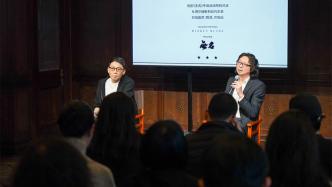
The movie "No Name" currently in theaters, in addition to gathering charismatic actors such as Tony Leung, Wang Yibo, Zhou Xun, Huang Lei, etc., director Cheng Er's outstanding film aesthetics and unique narrative structure are also talked about by movie fans.
On February 9, director Cheng Er returned to Shanghai, where the film "No Name" was filmed, and had a conversation with writer Xu Zhiyuan at Rongzhai, the filming location of the film, on the theme "From Borges to Modern East Asia".
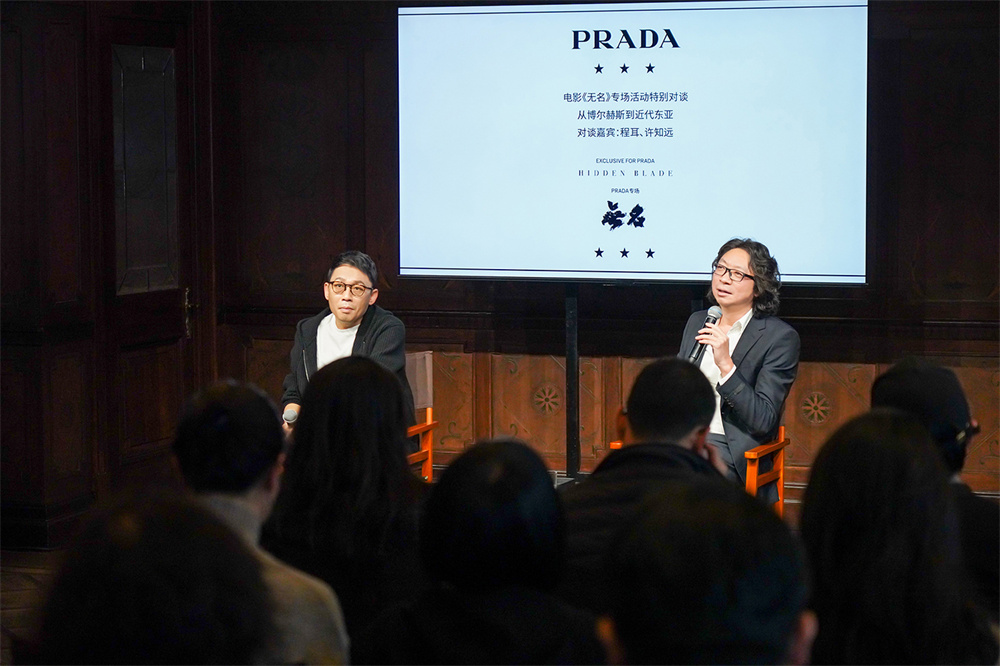
Cheng Er, Xu Zhiyuan
Cheng Er also wrote a related novel before filming "No Name", called "Once Upon a Time in East Asia". When talking about his novel mastery, Cheng Er said that Borges also liked to write spy stories, and he would make the timeline as intricate as a maze, and the hearts and motives of the characters were also ambiguous.
Meeting Xu Zhiyuan who also loves Borges, Cheng Er freely shared the formation of his view of history and many creative experiences, saying that in the process of reading history, the special memory of individual characters is the origin of the movie "No Name". place. The intricate undercurrents and the current humanistic thinking through time are presented one by one in this dialogue about film, literature and history.
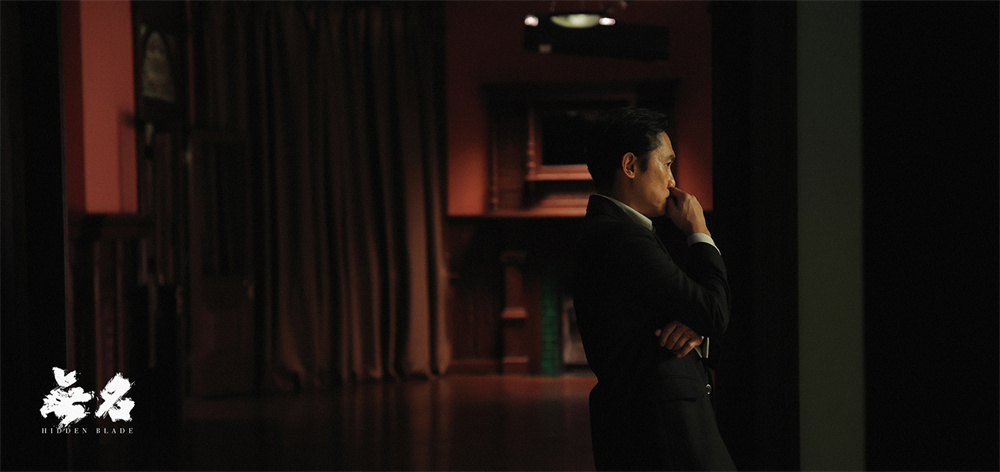
"No Name" filmed in Rong Zhai
Movies are like a web, the grandeur of history falls on the joys and sorrows of individuals
Xu Zhiyuan said that this time he was called by Cheng Er "half push and half". The two actually don't meet much, but every time they meet, there is a strong sense of resonance.
The first time we met was when Cheng Er had just shot "The History of Romantic Disappearance", and a novel of the same name was also published at that time. Cheng Er went to Beijing One-way Space to do activities, and Xu Zhiyuan was moved by his experience. In his writings, Xu Zhiyuan smelled a lot of deja vu, "brought about by the reading experience of his peers in the 1970s due to their common and specific educational background."
Talking from Borges, it is an unexpected angle, and after careful consideration, it is somewhat consistent with Cheng Er's movies. “I don’t know if it’s Borges’ original language or Wang Yongming’s translation that gives us such an impression. In the garden where the paths branch, time unfolds like a mist. All the stories are interrelated and very charming. The details are slowly woven together", Xu Zhiyuan read this kind of deja vu temperament in Cheng Er's words and videos.
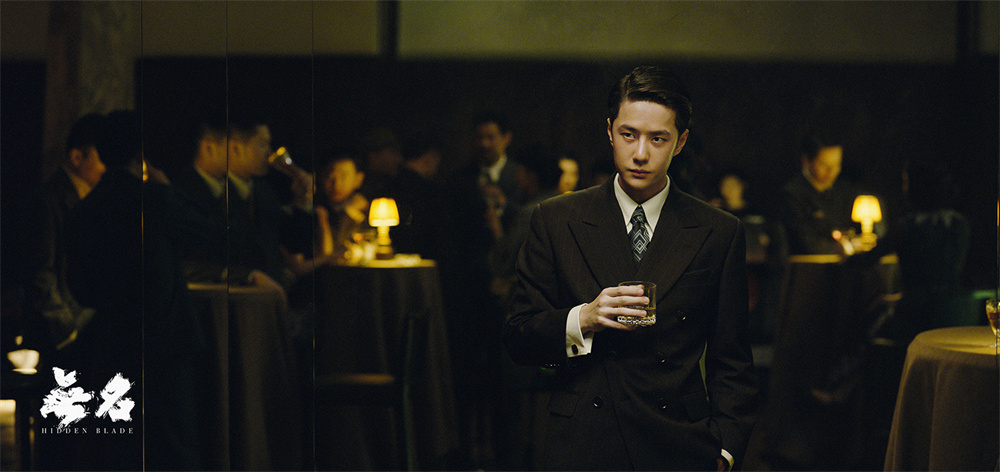
"No Name" filmed in Rong Zhai
Xu Zhiyuan said that what fascinates him most is that every character in "No Name" has not yet unfolded, but reveals some past events. This scene I saw."
For example, the young Japanese soldier who was shot in the movie was actually a nobleman. The past of the character played by Tony Leung during the Guangzhou bombing in 1938, "The past of any character in "Anonymous", we are shaped by all the past memories, and the moment shown in front of the audience is actually due to these past memories and the past. The sudden appearance of experience at that moment.” This is what touched Xu Zhiyuan most in Cheng Er’s words and images. It's like seeing a net, "This net even makes you lost, and you even feel that it is a bit too chaotic and ostentatious, and sometimes even the details cover the main body, but you will still be attracted by the specific details that can be unfolded."
As for this analogy, Cheng Er mentioned that Borges has written many wonderful stories about East Asia, and "No Name" is also a story about modern East Asia, an attempt to sort out the history of modern East Asia. Borges provided Cheng Er with "a way of entry, thinking and structure", and Cheng Er tried to sort out this period of history in Borges' way. "We present the history of the Republic of China very rigorously, and put the joys and sorrows of each character on the basis of this history."
In the process of Cheng Er’s reading and cognition of modern history and the history of the Republic of China, “there are so many books about the same period of history and the same scene, even more than movies, but in fact, no book can really cover everything. See When I get too much, I will think about it. Over time, my own logic will also intervene in history, hoping to identify and clarify what kind of historical process it is, and from which logical point of view is the most in line with the real situation. In the end, there will be some characters and scenes are forgotten by you, but there will be individual characters, scenes or events that will be unforgettable, and they will settle in your heart and linger." This kind of part that makes Cheng Er linger becomes "Romantic Dying History" and "No Name".
Therefore, Cheng Er has always insisted on a processing method in the narrative, that is, spending a lot of space to describe a moment, a moment or a night, and only using a short sentence to span several decades. Fantastic charm. "For me, the most lingering thing is the real history, emotion, and the logic of human nature itself. Movies are good at expressing nothing more than these things. No matter how the history is interpreted or how grand, in the end, it still falls on the individual. "Cheng Er said.
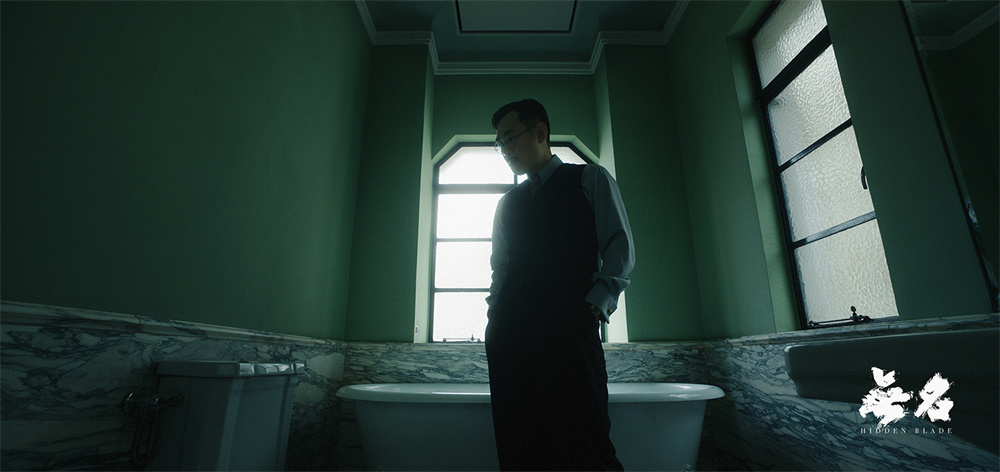
"No Name" filmed in Rong Zhai
Non-linear narrative brings unexpected joy, "cheaper" can "go further"
Because of this "weaving net" film narrative method, the stories in Cheng Er's films appear fragmented and secretive, requiring the audience to mobilize more thinking and understanding to participate in the film watching process.
"Why can't you tell a story in one order?" When talking about the way the film is handled, Cheng Er himself brought up this topic that is often "tortured" by people, and there were sporadic laughter in the audience .
“I would spend a lot of space describing a moment, a split second, or a night, but I could also use a sentence to span decades. If done correctly, there is a strange charm in itself. .From a certain point of view, each of us is limited in a linear time. When we create, when we disrupt the time, sometimes it seems to open a gap for me. I can still It’s an especially fortunate feeling that I’ve escaped this linear confinement. It’s an unexpected joy.”
From "Frontier Wind and Cloud" to "Romantic Disappearance History", and then to "No Name", Cheng Er has gone further in not telling a good story. Cheng Er jokingly said, "A common feature of "Romantic Death" and "No Name" is that they are too expensive", which made him feel a lot of pressure. "If it is cheaper, for example, it may be very cheap to shoot a modern film, and I can go very far without telling a good story."
Regarding the viewing threshold of nonlinear narratives, Xu Zhiyuan gave a special perspective, "Why do people want to see a linear story, because life is too nonlinear, and in a situation where the current information and past memories are completely flooding in, the A moment surrounded by people. Therefore, people are particularly eager for a certain sense of security and control provided by a linear story. And history is overwhelming, and people in the waves must find a wave they can surf to get over."
From this, Cheng Er recalled a deleted but very similar monologue in "No Name" - the current situation is uncontrollable, it envelops everything like an ocean wave.
Talking about the choice and expression of film language, Cheng Er said, "A person's language is as unchangeable as the soul, and will not change. If you are mature and serious, then when you really find your own vocabulary, you will Feeling is the most precious." Cheng Er considers himself lucky, "The style has not changed much, especially in terms of language, which still makes me quite comfortable."
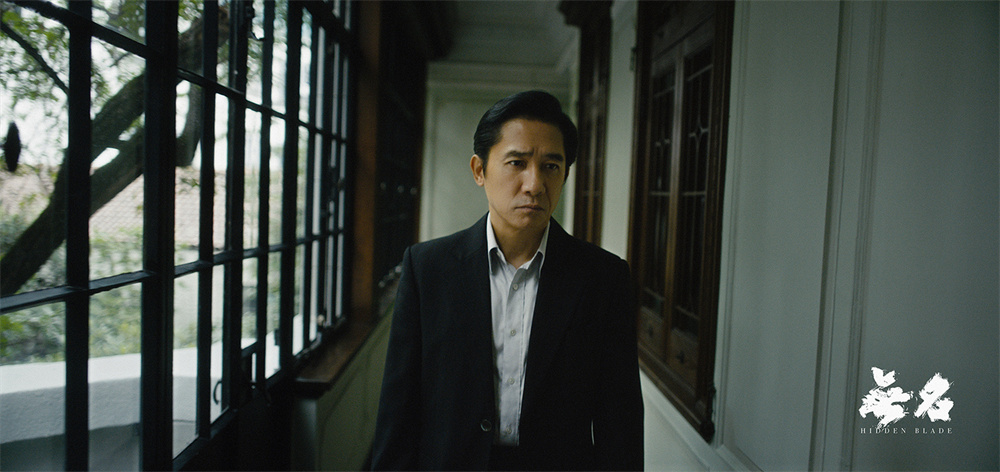
"No Name" filmed in Rong Zhai
Imagining the historical narrative space, "No Name" has already begun to make profits
For the subsequent creation, the two also had a more free imagination. Xu Zhiyuan said, "Our perspective rarely shows the network structure. For example, the success of the 1911 Revolution was a huge network among the Chinese world around the world, which influenced each other. This huge network includes World experience, Shanghai is a city of cosmopolitan experience, but we rarely deal with it more seriously and in-depth, and it is largely monotonized.”
Xu Zhiyuan especially expected Cheng Er to express the assassination of Song Jiaoren in 1913. "It was a scene with a huge historical impact. Song Jiaoren went to Tokyo to study when he was young, and was influenced by various German constitutionalists. He returned to this ancient land, but it was a young republic. Thirty It is a very reckless start to try this experiment at Duo Sui. It contains a huge energy of life and knowledge. It is not only a Chinese phenomenon, but a global phenomenon." How to present a stronger world context , to Xu Zhiyuan, is a very valuable question that also fascinates him.
Cheng Er also expressed his ambition and attitude to continue digging deeper into historical themes in the future, "We are all bound by the past, and we cannot get rid of the past, so history is important. The more we truly face history, the more we can clarify the context of history. To really grasp the process of history, in the end we are in order to live our own every day."
The conversation that day also happened to start in a century-old house with a sense of history. In the movie "No Name", the bar with flickering lights and Mr. Tang's office, these scenes were all filmed in the Rong Zhai. It is worth mentioning that this is the first time that the renovated Rong Zhai has received film and television shooting.
A Shanghai audience at the scene said that "No Name" showed the city of Shanghai from the language to the delicate aesthetics of the appearance, and it hit me. Director Cheng Er also shared his creative experience: "Language is very powerful. If you want to use some means to drag the audience into a certain context in the shortest time, language is the most powerful means. As long as Shanghai dialect comes out , This is Shanghai Bund. If there is no Shanghai dialect, I think there will be a very big lack." Cheng Er said, "Whether it is language, clothing styling, or some scenes, all the efforts I want to make will be It is to quickly place the audience in the context we want in the shortest possible time."
To the audience's question, how to accurately grasp the cultural charm of the city of Shanghai, Cheng Er introduced that he had lived in Shanghai for eight or nine years after graduation. Fascinated by Shanghai culture, he also read a lot to understand Shanghai, but This still cannot explain his sensitivity to Shanghai, "This is a very mysterious thing."
Cheng Er also revealed in the conversation that there was once a costume drama, and his wife liked it very much, and kept urging him to make it, but because the costume drama was too expensive, it was delayed. "Sometimes a director has to consider a lot of things. In fact, I might want to go further, but I saw that it was quite expensive, so I didn't go." From a more serious point of view, Cheng Er believes that creators are the best. Don't be influenced by various factors such as capital and stars. The director must persist and be able to bear it. "Within the boundaries of your personal art cognition, creation cognition and personal virtue, as far as you want to go, I I think it's all right."
Yu Dong, president of Bona Pictures, once said that out of appreciation and trust in Cheng Er, the budget of "No Name" is unlimited. Cheng Er revealed at the scene that he "didn't overspend" for "No Name". "And "No Name" is now making a profit, thank you for your concern."
As of press time, the box office of "No Name" has exceeded 830 million yuan.


